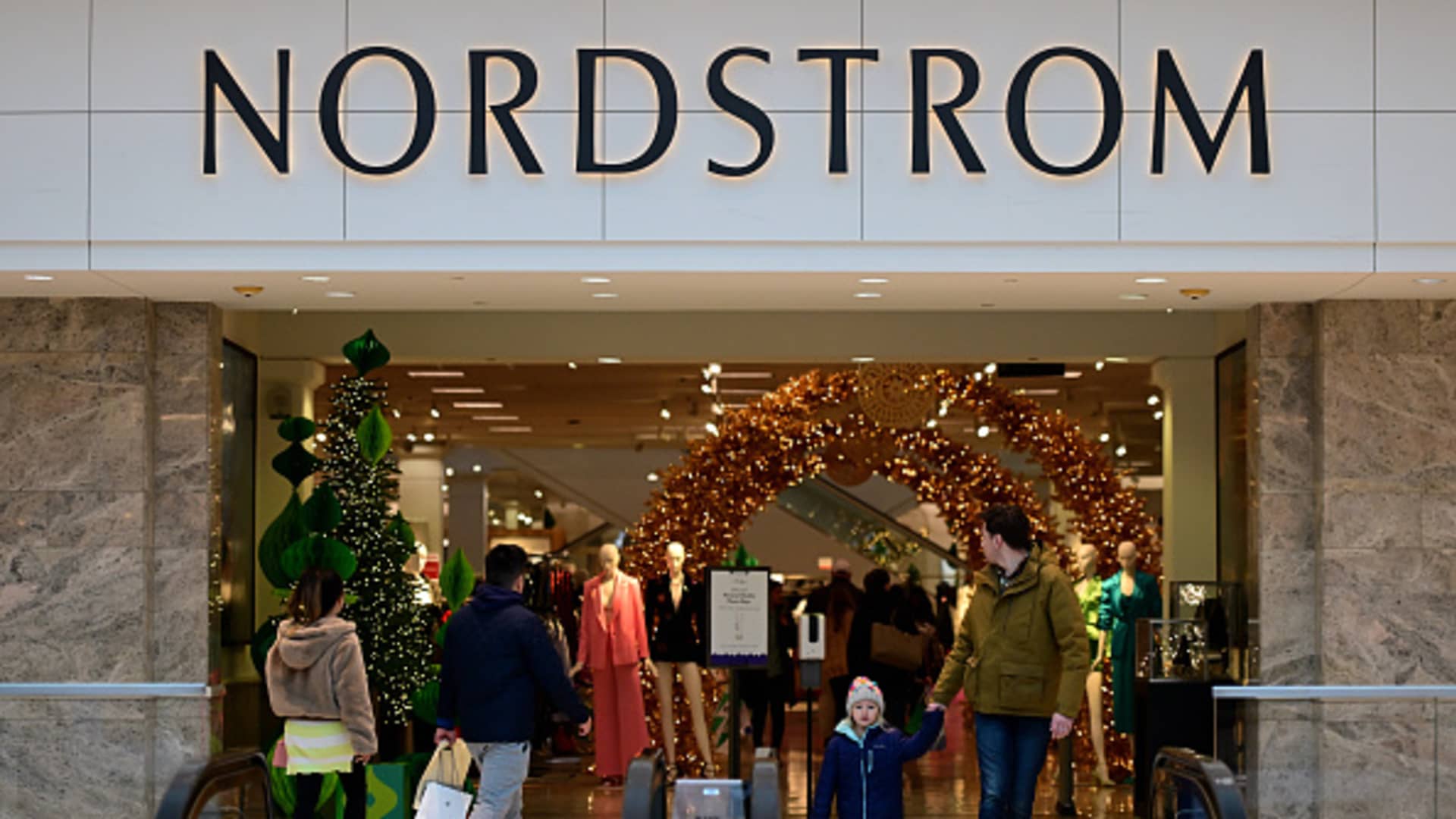Nordstrom on Tuesday said sales slid by nearly 7% year over year, echoing other retailers’ comments about weaker demand and budget-pressured consumers.
Yet the department store operator reiterated its full-year sales outlook, saying it expects revenue to decline by between 4% and 6% versus a year ago, including retail sales and credit card revenues.
It narrowed its adjusted earnings per share forecast, saying it anticipates $1.90 to $2.10, excluding the impact of winding down its stores and online business in Canada and any potential share buybacks.
Here’s how the retailer did in the fiscal third quarter compared with what analysts were anticipating, based on a survey of analysts by LSEG, formerly known as Refinitiv:
- Earnings per share: 25 cents, adjusted vs. 13 cents expected
- Revenue: $3.32 billion vs. $3.40 billion expected
In the three-month period that ended Oct. 28, Nordstrom’s net income rose to $67 million, or 41 cents per share, compared to a loss of $20 million, or 13 cents, in the year-ago quarter. The company had an impairment charge related to supply chain technology and related assets in the year-ago quarter.
Nordstrom is looking for growth after three straight years of sales that have been at or below pre-pandemic levels. The higher-end department store missed out on the dramatic sales gains that other retailers experienced during the Covid pandemic when consumers had extra cash and fewer ways to spend it during the pandemic.
As part of that push, the retailer has opened more of its off-price stores, Nordstrom Rack, and revamped merchandise in those stores to emphasize best-selling brands.
Yet Nordstrom’s efforts have been tougher in an environment where shoppers aren’t buying as many discretionary goods, such as clothing, and in some cases, prioritizing experiences, such as concert tickets.
Other retailers have also reported softer sales and signaled caution about the holiday season. On Tuesday, weak retail earnings dragged down the stock market. Best Buy and Lowe’s cut their fiscal fourth-quarter sales forecasts, and American Eagle Outfitters and Abercrombie & Fitch also disappointed investors with their holiday outlooks.
Nordstrom’s quarterly results reflected that, too. The company’s total revenue declined to $3.32 billion from $3.55 billion in the year-ago period. At Nordstrom’s namesake banner, net sales dropped 9.4% and at its off-price banner, Nordstrom Rack, net sales decreased 1.8%.
Yet in a news release, CEO Erik Nordstrom stressed the progress that the retailer has made with its earnings and gross margins. The company had lower markdowns in the three-month period than a year ago and its inventory was down nearly 9% compared with the year-ago period.
Digital sales decreased by 11.3% compared with the year-ago period, as the company was hurt by eliminating store fulfillment for Nordstrom Rack digital orders but helped by one week of the company’s Anniversary Sale moving into the fiscal third quarter.
During the quarter, online sales drove roughly a third of Nordstrom’s total sales.
As of Tuesday’s close, shares of Nordstrom have fallen 8% so far this year. That underperformed the S&P 500, which has posted gains of about 18% during the period.
